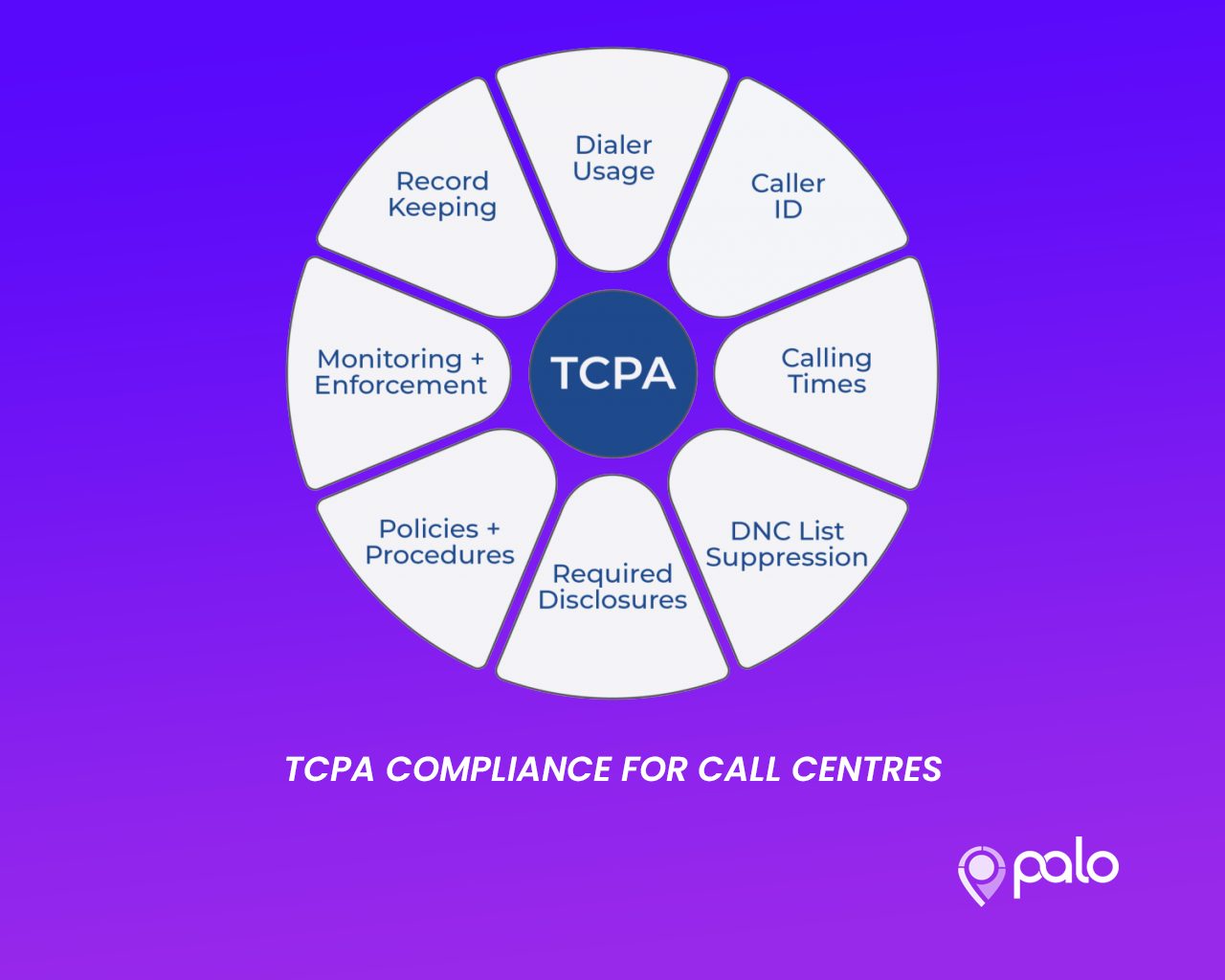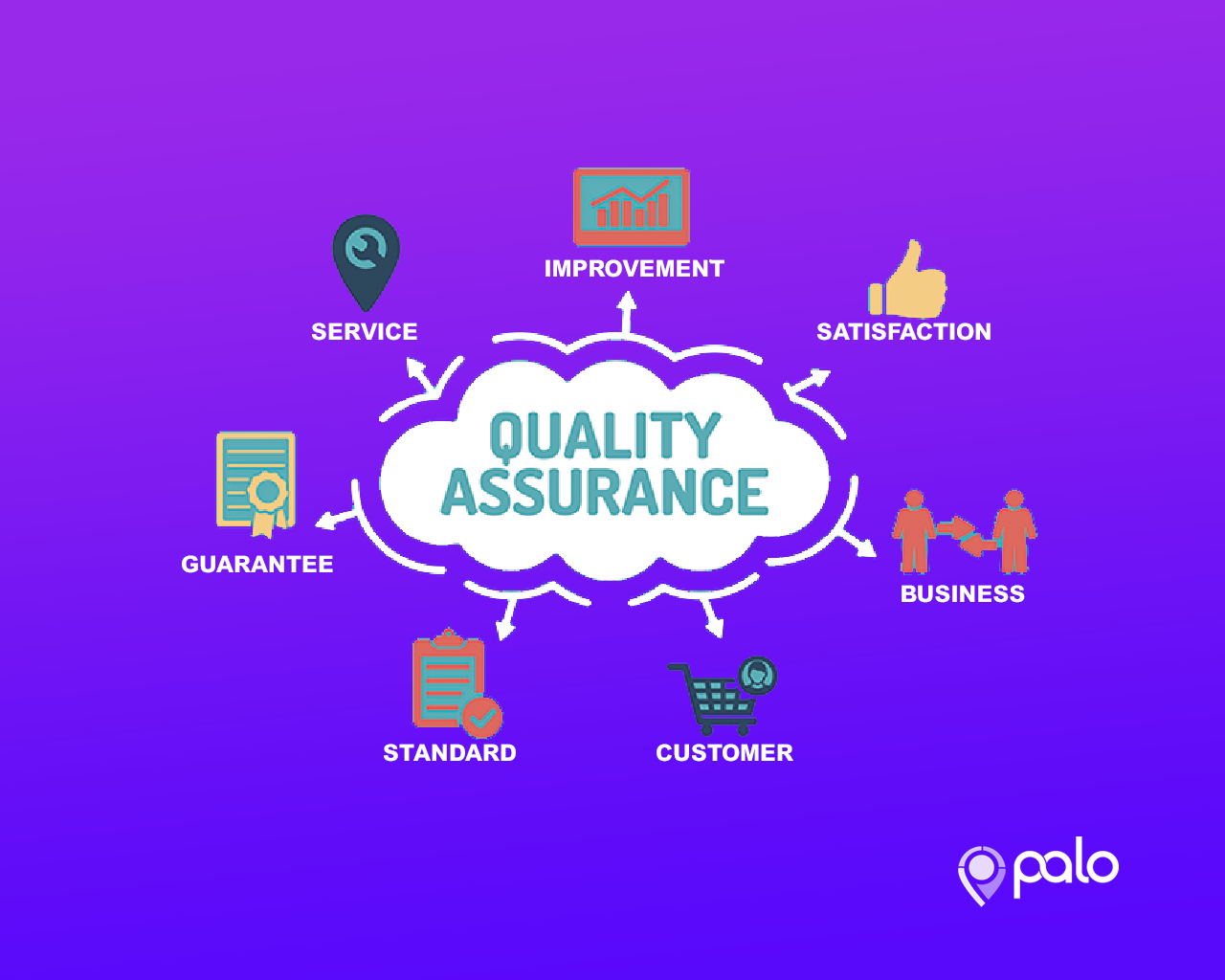
The Complete TCPA Compliance Checklist for Call Centers
Reaching out to prospective clients through calls, text messages, or emails opens an excellent opportunity for customer acquisition and business growth. However, there are a lot of regulations involved with telephone and text messaging campaigns.
In fact, failure to adhere to federal and state regulations regarding telemarketing can put your contact center at risk of hefty fines or restrictions, which could affect your business finances and reputation.
Statistics show that the Federal Trade Commission (FTC) received more than 1.8million complaints related to robocalls in 2022, making it a major concern for consumers and businesses.
So, what can you do to ensure your call center complies with all relevant laws and regulations? Here is a complete TCPA compliance checklist to follow.
Understanding the Telephone Consumer Protection Act (TCPA)
The Telephone Consumer Protection Act (TCPA) became law in 1991 and is designed to protect consumers from unwanted telemarketing calls, faxes, and text messages.
It sets strict regulations for companies that use automated telephone equipment to make sales or solicitations.
The law allows consumers to dictate their availability for phone calls and requires direct consent for auto-dialed calls, text messages for wireless phones, and pre-recorded calls.
All marketing companies must have a “Do Not Call” list that keeps track of people who have requested not to be called. They must also honor the national Do Not Call Registry.
Callers are expected to identify themselves by name and the company they represent at the beginning of every call and provide a phone number for consumers to ask to be added to their “Do Not Call” list.

Companies are not allowed to use artificial or pre-recorded voices when contacting a residence. Auto-dialed calls cannot connect to multi-line businesses.
Should your company disobey any of the rules outlined in TCPA, you may be sued for a fine of up to $500 per violation.
The consumer involved may also choose to seek an injunction. If the violation is committed knowingly, the fine rises to $1,500.
While this law may seem straightforward, it still has many gray areas that make it difficult to interpret it conclusively. A TCPA checklist may be of great use to businesses with call centers.
What Is TCPA Compliance?
Consumers are always weary of receiving unsolicited calls and text messages from marketers. This is understandable because some of the calls and text messages may be unrelated to their needs or interests.
The TCPA was enacted to protect consumers from such scenarios. Telemarketers, debt collectors, and other companies using auto-dialing telephone systems are prohibited from contacting consumers without their consent.

Before the enactment of the law, telemarketers and debt collectors operated freely, harassing consumers with sales messages and calls.
Although Congress included general prohibitions, restrictions, and exemptions in the Act, it mandated the Federal Communications Commission to write specific regulations and penalize offenders.
TCPA requires marketers to provide prospects with an easy way to opt out of promotional calls.
TCPA Compliance Checklist
Having understood what TCPA is and what compliance means, it is important to ensure your call center is fully compliant.
Below is a comprehensive TCPA compliance checklist to help you protect your business from fines:
1. Use an updated call list
One of the most common mistakes businesses make regarding TCPA compliance is using outdated call lists.
It’s essential to keep your contact list up-to-date and scrubbed regularly to delete any numbers that have been added to the Do Not Call Registry.
Remember that if one of your call center agents calls a phone number listed on the National DNC Registry, your business could be sued for violating TPCA. The consumer will launch an official complaint with the FTC, which could result in hefty fines.
Fortunately, automated services and software can help you scrub your contact lists regularly to ensure that only updated numbers are called.
2. Obtain Proper Consent
One of the primary components of TCPA regulations pertains to consent. According to the regulations, consent comes in two forms: express and implied consent.
According to the Act, consent is necessary for any type of telemarketing communication. If a robotic system or pre-recorded voice is used to deliver sales messages over the phone, it counts as automated marketing.
Prior written express or implied consent is required before the messages are pushed to the prospect. Otherwise, the communication may violate TCPA regulations.
But the big question is, how do you obtain consent from your prospects? There are several ways to obtain proper consent, including:
- Using an online form where prospects can check a box agreeing to receive calls.
- Recording verbal consent before connecting the call with a live agent.
- Sending a text message with an opt-in keyword for prospects to reply and confirm their consent.
- Including proper disclosures in advertising materials that inform recipients they may be contacted by phone if they provide their number voluntarily.

However, you must keep in mind that you cannot require consent to be part of the process of purchasing goods or services.
While you can ask for consent during a transaction, you must still fulfill the transaction even if the consumer withholds granting the marketing consent.
It is also good to mention that an established business relationship is not consent. So, don’t rely on established relationships such as a previous purchase to assume the consumer has granted consent to your sales messages.
3. Maintain a record of consent
You can protect your business against litigation by keeping an updated record of all prospects who have consented to and the type of communications they have consented to.
Third-party tools such as TrustedForm can document and prove consent for each call made, providing a strong defense in case of any legal action.
They also provide long-term storage in case you need to refer to a particular lead interaction later.
4. Provide an Opt-Out Option
In addition to obtaining proper consent, businesses must provide prospects with an easy way to opt out of promotional calls or messages. This option should be clearly stated at the beginning of every call and in all marketing materials.
If you are contacting prospects through SMS, consider using the following lines as an opt-out mechanism:
- Reply STOP to unsubscribe.
- To stop receiving message communications from us, reply STOP/UNSUBSCRIBE.
- Text 675 to 4532 to stop receiving our messages.

For email messages, make sure you have an unsubscribe link. For calls, you could use an interactive voice response (IVR) system that allows prospects to press a button to opt-out of your campaign. Explore both verbal and written requests.
Ensure your contact center agents stop contacting everyone who has opted out of your campaigns to avoid trouble.
5. Use verified numbers
The TCPA requires businesses to have reasonable identification in place when contacting prospects. Identification includes your official business name and verified phone number. You risk being flagged as spam if your business details are unverified.
The easiest way to verify your business number is by registering it with the National Do Not Call Registry. This registration must be done every year to ensure compliance.
Other best practices include implementing call abandonment policies and avoiding dialing mobile numbers with an automatic telephone dialing system without prior consent.
6. Limit Your Redialing
Dialing a single prospect repeatedly can be quite frustrating and may be considered harassment. The TCPA regulates the number of times a prospect can be dialed for telemarketing purposes within 30 days.
The law stipulates that businesses can only make one call attempt per day, up to three calls in a week, and a maximum of six calls in any given month. This means that you should have at most six attempts in 30 days.

Consider using workflow dialing software to automatically rest prospects after a certain number of call attempts.
Embracing an omnichannel marketing approach can help you contact prospects with fewer calls and text messages.
7. Limit telemarketing hours
The TCPA allows telemarketing calls to be made between 8:00 am and 9:00 pm, according to the recipient’s local time.
This means that if you are in New York and call a prospect in Los Angeles, you can only do so between 11:00 am and 12 midnight EST.
Be sure to train your call center agents to comply with these time restrictions and instruct them not to call on Sundays and federal holidays.
Unless your business is on the list of exclusions, avoid making calls or sending messages outside the mentioned hours.
8. Maintain compliance through regular training
Educating all employees in your business, including marketers, sales reps, and customer service agents, about TCPA regulations is essential.
Ensure they understand the importance of obtaining proper consent, providing opt-out options, and maintaining a record of consent.

Regularly conduct training sessions to reinforce these practices and keep your employees up-to-date with any changes in regulations.
This will help you stay compliant and ensure your customers’ preferences are respected, preventing potential legal troubles.
Final Thoughts
TCPA compliance is critical for businesses operating call centers and initiating telemarketing campaigns.
Ensure you are familiar with the regulations, have proper consent from prospects, provide an opt-out option, use verified numbers, and keep an updated call record. Regularly train your employees to maintain compliance and respect consumer preferences.
At PALO, we take pride in running TCPA-compliant pay-per-call campaigns that help businesses generate highly qualified leads.
We believe in putting the consumer first and following all regulations to ensure a positive experience for both businesses and consumers.
Contact us today to learn more about our compliant lead generation strategies and how we can help your business scale profitably.






